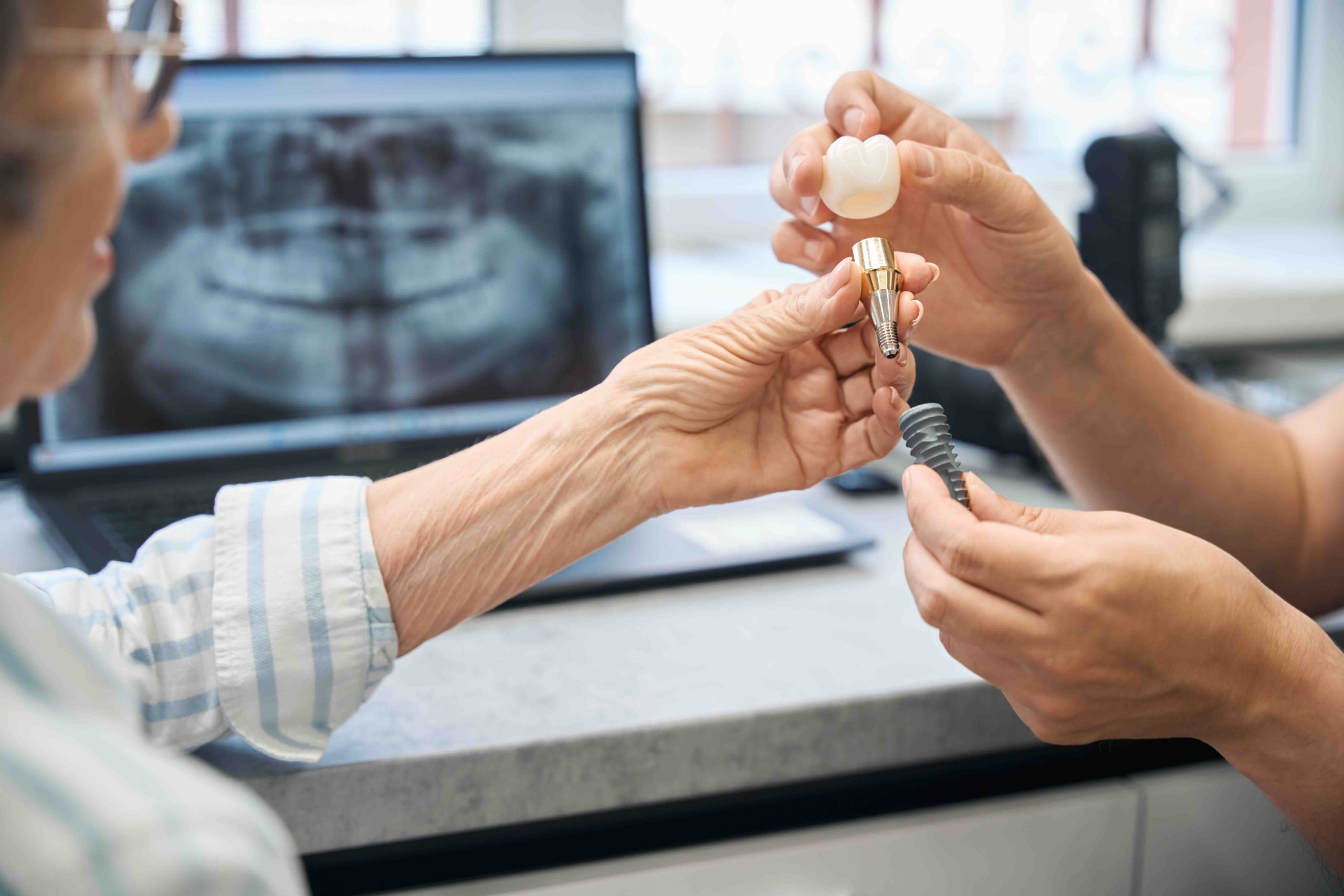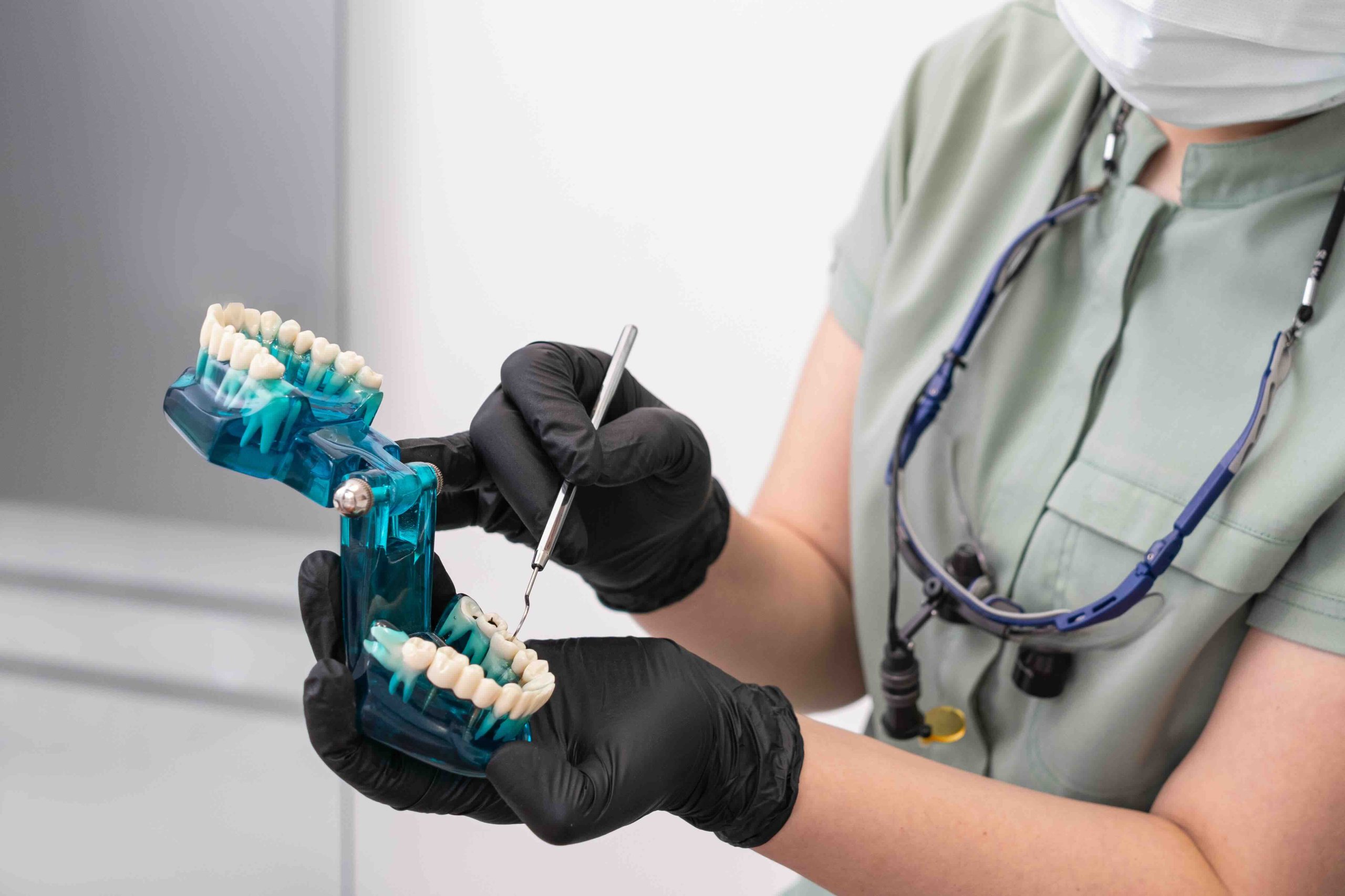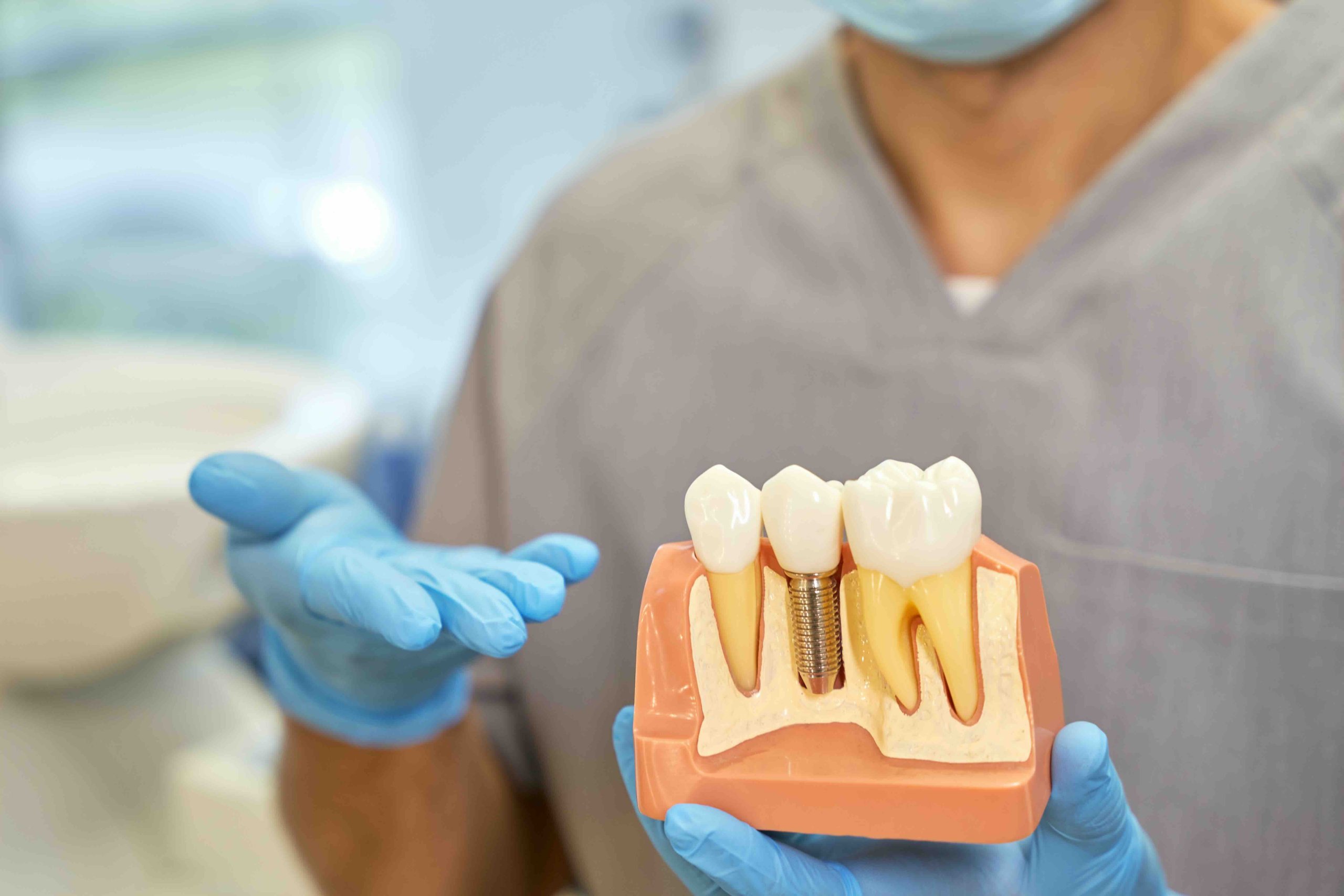Dental implants are a highly effective solution for replacing missing teeth, restoring both function and aesthetics. The type of implant varies depending on individual needs and oral health conditions. In this article, you will learn about different types of dental implants and different dental implant options to determine the most suitable treatment option for you.
What Are Dental Implants?

A dental implant is a titanium-made artificial tooth root designed to replace missing or severely damaged teeth, offering a permanent solution. Implants fuse with the jawbone, restoring the natural functions of the tooth and providing the most aesthetic and functional solution closest to a natural tooth. Additionally, they offer long-lasting durability and come with different dental implant options, allowing patients to choose the best solution for their needs.
Types of Dental Implants: Endosteal vs. Subperiosteal
Dental implants, also known as artificial tooth roots, come in different types based on the patient’s needs. The two most commonly used implant types are endosteal and subperiosteal implants. Both types of implants are selected based on the patient’s jaw structure, bone density, and overall health condition. A dentist needs to evaluate the best dental implants for you.
Endosteal
Endosteal implants are a commonly used type of dental implant. Endosteal implants are the most commonly used type of dental implant. They consist of titanium or ceramic screws, cylinders, or blades that are surgically placed directly into the jawbone to serve as artificial tooth roots. In this procedure, the jawbone is surgically drilled, and the artificial teeth are securely held in place by the implant.
Subperiosteal
Subperiosteal implants are an alternative for patients with insufficient bone density who may not be candidates for traditional implants. In this treatment process, a metal plate or frame is placed around the jawbone rather than within it, and it serves to hold the artificial teeth in place.
Titanium vs. Zirconia Implants: Which Is Better?

The two most commonly used materials in dental implants are titanium and zirconium. Each material has their unique advantages and disadvantages, and the most suitable one may vary depending on the patient’s needs and health condition. Here are the characteristics of both materials:
Titanium Implants
Titanium implants are typically two-piece structures, known for their durability and long-lasting properties. They integrate easily with bones and have a low risk of allergic reactions. Additionally, titanium has high flexibility.
Zirconium Implants
Zirconium is a single-piece material that provides a more natural and aesthetic appearance due to its white color. It is an excellent option for patients with metal allergies since it is metal-free and highly biocompatible.
The most suitable implant material varies from patient to patient, so a dental evaluation is recommended for an accurate determination of the best option for your specific needs.
Immediate Load vs. Traditional Implants
When getting a dental implant, one of the most important decisions is choosing the right method, in addition to selecting the implant material. Here, we encounter two options: Immediate Load and Traditional Implants.
Immediate Load
The Immediate Load method involves placing a temporary crown on the same day the implant is inserted. This allows for both the implant placement and a functional temporary tooth immediately after tooth extraction, offering a faster return to a natural smile. While this method provides both aesthetic and functional benefits, it requires sufficient bone density to ensure stability and successful healing.
Traditional Implants
Traditional implants are a widely used solution for replacing missing teeth. The procedure involves surgically placing a titanium post into the jawbone, which then gradually integrates with the bone to provide a strong, long-term foundation. However, this method requires a longer healing period, often taking several months for full osseointegration before the final restoration can be placed.
The most suitable option depends on the patient’s bone structure and individual needs, which should be assessed by a qualified dentist.
Mini Dental Implants: Are They Effective?
Mini dental implants typically range from 1.8 mm to 3.3 mm in diameter and are distinguished by their smaller size and single-piece design compared to traditional implants. These implants are often preferred for patients with insufficient jawbone volume.
Due to their smaller structure, mini dental implants offer less invasive placement, resulting in a quicker recovery process. They are particularly effective in prosthesis stabilization and serve as a valuable solution for cases with limited bone density. However, in terms of durability and long-term performance, mini implants may not offer the same level of strength as traditional implants. They are generally best suited for replacing smaller teeth or enhancing the stability of prosthesis. Therefore, comprehensive dental evaluation is crucial by the dentist based on the patient’s specific requirements and condition is essential.
All-on-4 vs. Single-Tooth Implants: Pros & Cons
Dental implants provide an effective and long-lasting solution for individuals with missing teeth, with multiple treatment options available. Two of the most widely chosen implant solutions are the All-on-4 system and single-tooth implants. Each option offers unique advantages, catering to different patient needs—but what exactly sets these two approaches apart?
All-on-4 Implants
All-on-4 implants involve a fixed prosthesis supported by four implants and are designed for patients with complete tooth loss.
Pros:
- Typically does not require bone grafting
- Designed for patients with total tooth loss in the entire mouth.
- Quicker healing time
- Shorter treatment duration
- Cost-effective as it requires fewer implants
Cons:
- Fewer support points- Compared to traditional implants, meaning damage to one implant can compromise the entire system.
Single-Tooth Implants
A single-tooth implant consists of a titanium post surgically placed into the jawbone, topped with a porcelain or zirconia crown. This treatment is an effective solution for replacing a single missing tooth, closely mimicking the function and appearance of a natural tooth. It mimics a natural tooth root and provides an independent solution without affecting surrounding teeth.
Pros:
- A durable, long-lasting
- Independent from surrounding teeth and preserves adjacent teeth
- Provides the most aesthetically and functionally natural solution
Cons:
- Longer healing time
- Higher cost for multiple teeth
Both All-on-4 and single-tooth implants present distinct advantages of dental implants, depending on the patient’s specific needs. Each method offers unique benefits, so consulting with a dentist will help determine the most suitable option.
Aftercare & Longevity: How to Maintain Dental Implants

The longevity, health, and functionality of dental implants depend heavily on proper maintenance. To maximize their lifespan and prevent complications, it is essential to follow good oral hygiene practices and healthy habits. Here are some key recommendations:
- Maintain Proper Oral Hygiene
- Schedule Professional Dental Cleanings
- Use a Mouthguard if Needed
- Choose the Right Oral Hygiene Products
- Limit Tobacco Use
- Limit Alcohol Consumption
- Follow a Balanced Diet
- Avoid Hard Foods
- Attend Regular Dental Checkups
- Monitor Gum & Surrounding Tissue Health
- Manage Stress Effective
How to Choose the Right Implant for Your Dental Needs
Choosing the right dental implant depends on the patient’s oral structure, bone density, overall health, and aesthetic expectations. Therefore, it is recommended to consult your dentist for the most accurate decision. The dental implant procedure types can vary, with options ranging from single-tooth implants to full-mouth restoration techniques like All-on-4. Additionally, the cost of different dental implants can vary based on the type of implant and the complexity of the procedure. For those considering international options, dental implant in Turkey offer cost-effective solutions with high-quality results, making it a popular destination for dental tourism.





